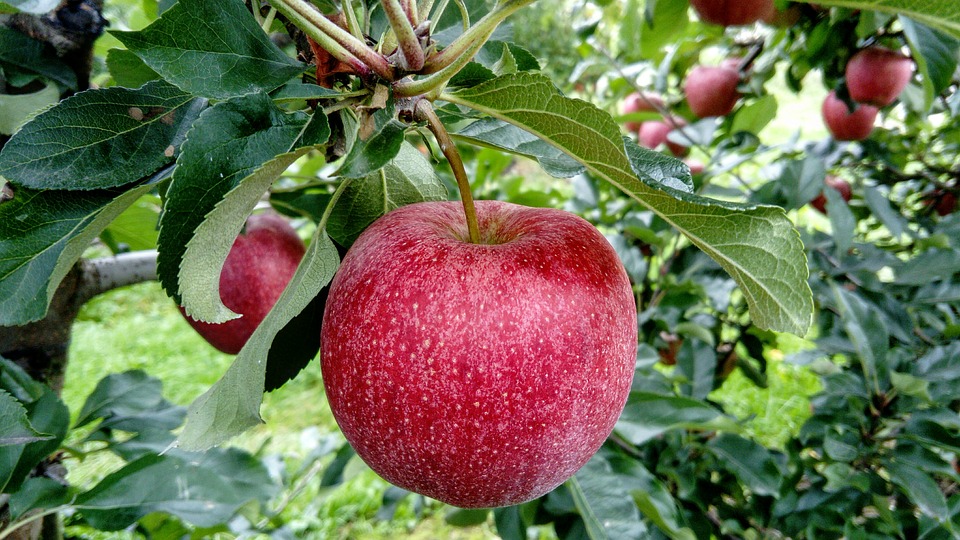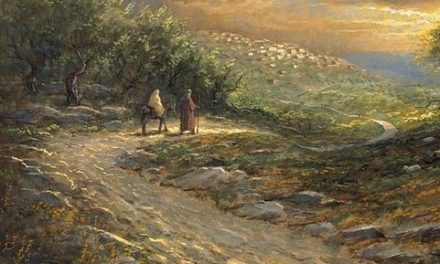image courtesy of Max Pixel (CreativeCommons): https://www.maxpixel.net/photo-2740499
The readings for this Sunday may be found on the USCCB website:
“Every tree is known by its own fruit,” Jesus tells us in this Sunday’s gospel reading. “A good tree does not bear rotten fruit, nor does a rotten tree bear good fruit” (Lk 6:43-44). So if a tree’s fruit is good, you know the tree is healthy, and likewise if the fruit is rotten, you know there’s something wrong with the tree that produced it. Jesus then says the same principle applies to people with respect to their words and deeds. “A good person out of the store of goodness in his heart produces good, but an evil person out of a store of evil produces evil; for from the fullness of the heart the mouth speaks” (Lk 6:45). The parallel passage from Matthew directs the analogy more specifically to “false prophets”: “Beware of false prophets, who come to you in sheep’s clothing, but underneath are ravenous wolves. By their fruits you will know them” (Mt 7:15-16).
In these passages, Jesus seems to be offering us a way of distinguishing good people from bad people, true prophets from false prophets. Is it possible, then, for us to make judgments about who is good and who is bad? Doesn’t Jesus also command his followers to “stop judging, that you may not be judged” (Mt 7:1)? So can we judge whether a person is good or not? For that matter, what makes us think that we can even tell whether a person’s “fruit” is good? After all, Jesus immediately precedes this passage in Luke’s gospel with the directive to “remove the wooden beam from your eye first; then you will see clearly to remove the splinter in your brother’s eye” (6:42). In other words, our vision of others’ faults can be impaired by our own, and so we should be careful about focusing too much on what might be wrong with others, when something even worse might be wrong with us. So where then does that leave us? What is the point of the parable, if we can’t have confidence in our ability to determine good fruit from bad fruit?
It would seem that the “blind person” Jesus references at the beginning of the gospel reading is us, just as we are the ones with the beam in our eye. When we read Jesus’ question “Can a blind person guide a blind person? Will not both fall into a pit?” (Lk 6:39), we can accept and affirm his point all too easily and a bit too enthusiastically. “Yes, of course, Jesus! If the guide is blind, those who follow him will fall into a pit!” And we might even have examples at the back of our minds: “yeah, like the people who follow that guy!” But almost as if to stop this sort of presumption in its tracks, Jesus reminds us: “remove the wooden beam from your eye first.” We are not the arbiters of who is blind and who is not; we ourselves cannot see rightly, and so we need a guide who is not like us, a guide with unimpaired vision.
For this reason, in the verse immediately following this gospel reading, Jesus puts the question to his disciples: “Why do you call me, ‘Lord, Lord,’ but not do what I command” (Lk 6:46)? The point is not really about how to determine who is good , or even about how to make others or oneself good; rather, the whole gospel is an exhortation to discipleship. Jesus is telling us here that we need Him. He is inviting us to follow Him and rely upon Him so that so that He can heal us, so that He can produce good fruit in us.
The modern conceit is that we are healthy, flourishing, and good only to the extent that we can guide ourselves. Self-direction and autonomy are the marks of those who are fully developed, rational, and free. Whatever “fruit” the good person produces, it is fruit they have independently chosen to produce. A close corollary to this principle is that what matters most is our own determination of the goodness of our fruit, and the self-acceptance and self-affirmation of our own goodness as persons. It is right and good that we tell our children not to base their own self-regard on what others think of them, but at the same time Jesus reminds us here that neither should we judge ourselves based merely on what we imagine ourselves to be.
“When a sieve is shaken, the husks appear,” ben Sira tells us in the first reading, “so do one’s faults when one speaks. As the test of what the potter molds is in the furnace, so in tribulation is the test of the just” (Sir 27:4-5). The word “tribulation” in this verse is elsewhere rendered “conversation,” which suggests that there is a kind of “confrontation” that takes place when we make our own self-consciousness external through speech. It is a confrontation not only between our own self-understanding and that of others, but also between the sort of agency we regard ourselves as exerting and the kind of agency we actually exert in the world. Michel Foucault famously said in Madness and Civilization “Most people know what they do. They frequently know why they do what they do. But what they don’t know is what what they do does.” This insight applies directly to this passage from Sirach: what determines whether our words and actions are actually good is not simply our own self-understanding or intentionality, but above all the effect those words and actions have in the world around us and upon the people around us.
In a famous 1980 study by Ola Svenson, 88% of American respondents rated themselves as “above average drivers.” Given that it is impossible for 88% of any group to be above average at anything, the study revealed that American drivers have an inflated sense of their own driving ability relative to others. Christian Miller’s 2017 book The Character Gap collected and explored the many psychological studies demonstrating that a similar contradictory dynamic applies to people’s evaluation of their moral character. A great many of us rate ourselves much higher on the morality scale than we actually turn out to be. To put it bluntly, we are not as good as we think we are. That may sound harsh and bleak, but for Christians, it is a source of good news and liberation.
Yes, we are not as good as we think we are: we have beams in our eyes, and are therefore blind, and so we need someone to guide us. The good news is that we have a guide who not only has light in their eyes, but who is the Light of the World!
We may know intellectually that good persons bear good fruit and bad persons bear bad fruit, but nevertheless our capacity to determine the difference between good and bad fruit is occluded by an even greater capacity for self-deception and self-justification. We are trees who do not know whether our fruit is rotten or not, and so we do not know if we are sick or healthy. We need a gardener! The good news is that we have a gardener who not only knows how to cultivate us, but who has formed us from the beginning and planted us in a garden for our own sake, and who has sweated blood in a garden and rose from the dead in a garden so as to save us and make us whole.
How can we tell what good fruit looks like? “This is how all will know that you are my disciples,” Jesus assures us, “if you love one another” (Jn 13:35). How do we know how to love one another? “As I have loved you,” Jesus says, “so you also should love another” (Jn 13:34). But what is love; what does love look like? “The way we came to know love was that he laid down his life us; so we ought to lay down our lives for one another” (I Jn 3:16).
We may be blind wanderers, but Jesus is our guide. We may be trees who are insensible to the rottenness of our fruit, but Jesus is our gardener. He will guide us to the eternal Light, and will cultivate in us a goodness that goes beyond what we could have anticipated or imagined. It may seem to us a strange and painful journey, especially when He takes the beam of pride out of our eye and prunes away the branches of our sin and self-absorption, but he is making us into creatures who will produce the sort of fruit that will never fade, flowering olive trees in the eternal garden of the One who gave us life and light.




